Should they stay or should they go?
We met in a Dorset village hall not far from Tolpuddle; the symbolism was not lost on us as we viewed the 21st century bench of our betters sent to deliver the verdict upon us. 186 years on from the penal transportation of the Martyrs the institutions doing the work of the state may have changed but the effect remains the same: your voices will be heard but your words are of no consequence. Let me tell you how we came to gather on this miserable February afternoon.
 | |
The Clash pictured 1979. Disruptive but in a good way.
|
Beavers once roamed the wetlands of Britain, but they had the combined misfortune of being good to eat, warm to wear and easy to capture.
The arrival of man was not good for the beaver population. Nor was the consequent draining of their wetlands for farming. By the time of the Norman Conquest they were on the way to effective extinction with the odd colony hanging on until the 1500's. And there the story of the British beaver, bar a few short surviving importations in the Victorian era, should have ended. Until just recently when the cry went up: the beavers are back!
How so, you might ask. Was this planned? Who authorised it? What was the purpose? Has there been a resurgence of wetland habitat? Well, none of the above. The beavers had either escaped from parks or, more likely, were deliberately (and illegally) released into the wild. And for a while nobody noticed the few dozen that built their lodges in Scotland and elsewhere. But if you are a big, cuddly rodent with a winning smile it is hard to live under the radar forever. Especially when you go around damming otherwise free flowing rivers and felling fifty-year-old trees.
At this point a brief discussion ensued: should the beavers be allowed to stay? The cautious voices that said remember the coypu, American signal crayfish, mink, grey squirrel and the other numerous importations of invasive mammals and plants (Himalayan balsam and Japanese knotweed spring to mind) were silenced by the ecological great and the good. Beavers are good. They promote diversity. They will help fight climate change. They are a tourist attraction. It is good PR for us. And we hold the keys to this particular Pandora's box.
Indeed, they do. In our case the bench comprised of Natural England (mission statement alert: the government's adviser for the natural environment), the National Trust and the Devon Wildlife Trust. If beavers are to arrive in Dorset it will be on their say so. Not the ecologists, environmentalists, landowners, forestry experts, river lovers and countryside dwellers who had gathered in the hall to point out the manifest risks of introducing beavers into the chalkstream valleys of Wessex.
For the risks are huge. Chalkstreams are gently flowing rivers. Impoundments be they the result of man or nature, interrupt that natural flow. Like a blocked gutter they bung up the system, trapping detritus that festers and spill water where it is not required. But worst of all these unique rivers, of the 225 in the world 215 are in England, are the corridor of life for the Atlantic salmon, our native Brown trout and the European eel. They need free passage for the annual spawning and to escape to a better place when endangered by flood or drought.
I could go on, but the purpose of this piece is not so much about the pros vs. cons but rather how stacked the deck is against the status quo. It as if that is a 'bad thing'. Beavers have captured the zeitgeist. Those of us who are sceptical of the releases have the equivalence of climate change deniers.
The National Trust, Britain's biggest landowner, is set on wild releases in the Purbeck Hills, which will place beavers within a days' walk of the Dorset Frome. The body who grants the licences, Natural England, are evangelical in their support. And the Dorset Wildlife Trust are likewise smitten. In fact, there was one extraordinary exchange between the Trust and a neighbouring landowner who asked, bearing in mind that the Trust river flowed directly into his, why he had not been consulted about a release into a 3-hectare enclosure? The reply was tart: we are a private company, so we don't have to. And the man from Natural England could not get to his feet quick enough to explain that they had no legal obligation to consult either.
I would like to tell you where the Environment Agency are on this, but they were unaccountably absent. It could be perhaps that for the past decade, in response to a European wide initiative, they have arranged hundreds of consultations, deployed thousands of man hours and millions of pounds to remove yes, you've guessed it, the weirs, dams and numerous other historic obstructions from our chalkstreams that impede the free flow of water and migrating fish.
So, as The Clash didn't sing, should the beavers stay, or should they go? In all honesty I think they should go; on any non-emotive risk/benefit analysis the scales are weighted against the beaver being of benefit to the settled landscape of the chalkstream valleys. But hoping they will go is a pipe dream; if you thought the badger cull was emotive just try suggesting that of beavers.
My view is that Natural England should take the precautionary approach with a moratorium imposed on all future licences for both wild and enclosed releases until 2030. In that time the beavers that exist can take their chances. If they survive and thrive without causing permanent collateral damage to the landscape and other wildlife my fears, and those of others, will have been proved unfounded. We've done pretty well without beavers for five hundred years; I can't think waiting another ten will not make much difference.
The downside of fame
Knowing your favourite local has become famous is something of a mixed blessing. At once a celebration of your incredible foresight/taste/discernment/secret but on the other a sinking feeling that an era may be coming to an end. Of course, you feel happy for
mein host. Riches will soon be coming his or her way.
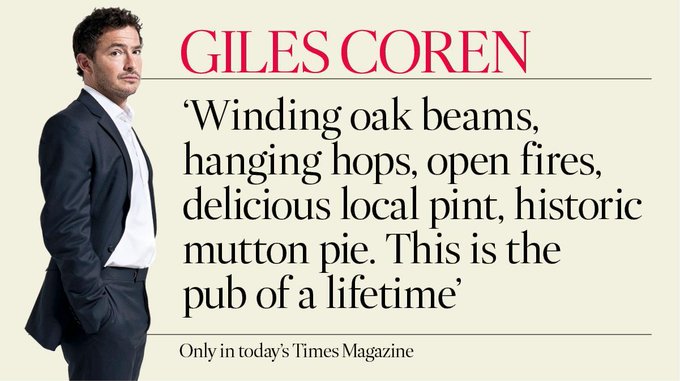 No longer will you be able to take your weekend pals to the 'wonderful place nobody knows about'. Now if you mention the name of the establishment they'll cite Giles Coren in The Times or, more likely, their best yoga pal.
No longer will you be able to take your weekend pals to the 'wonderful place nobody knows about'. Now if you mention the name of the establishment they'll cite Giles Coren in The Times or, more likely, their best yoga pal.
Bookings will need to be made weeks, but probably months, in advance. If you plead and weasel, you'll get that ominous response that crosses my particular booking etiquette line: we'll need the table back by x o'clock.
Such a fate may befall The Compasses Inn at Chicksgrove. Thank you, Giles. It has, over recent seasons, been the most recommended pub in our fishing reports, handy for the Nadder, Wylye, Allen and Avon.
Oh well, at least we were all there before the rush ......
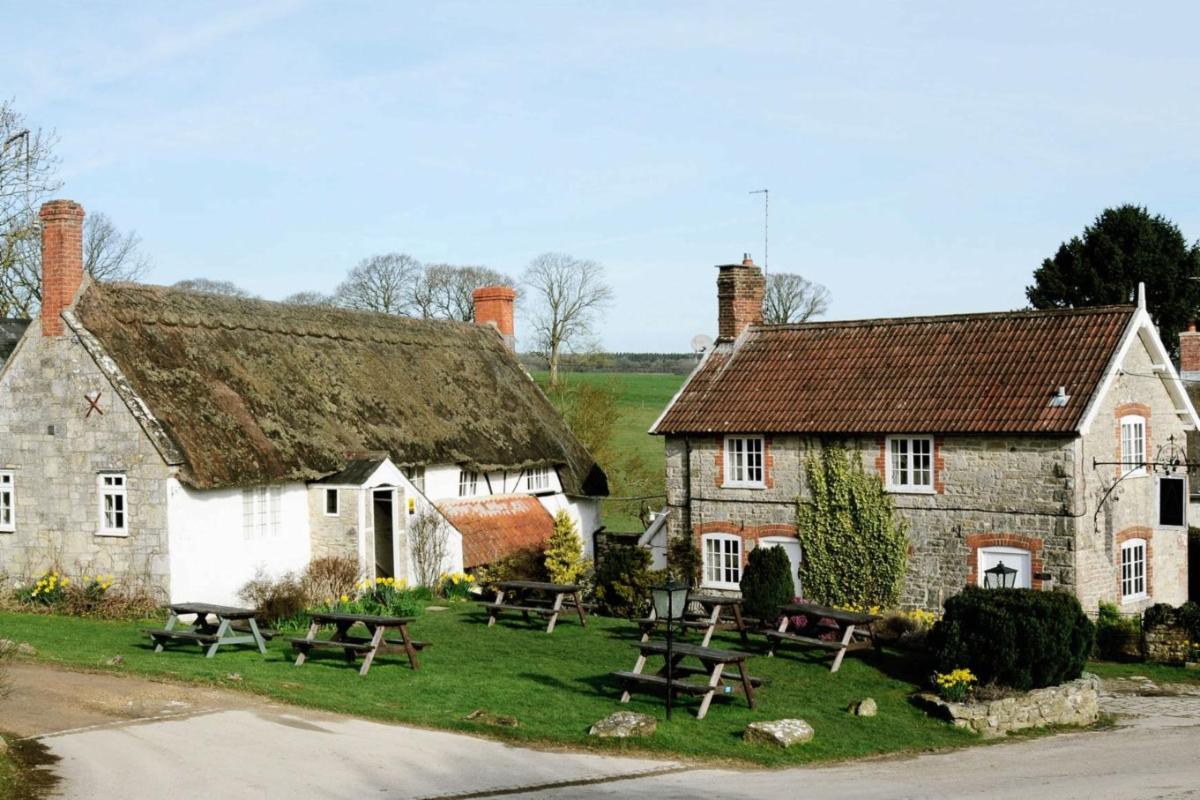 |
|
|
We hear you!
We hear you though apparently you couldn't hear us very well! It seems my choice of the ex-Fishing Breaks office as our studio was an acoustic fail. Sorry about that; we'll up our game and thank you for the feedback. Not much point in a hard-to-hear podcast ......
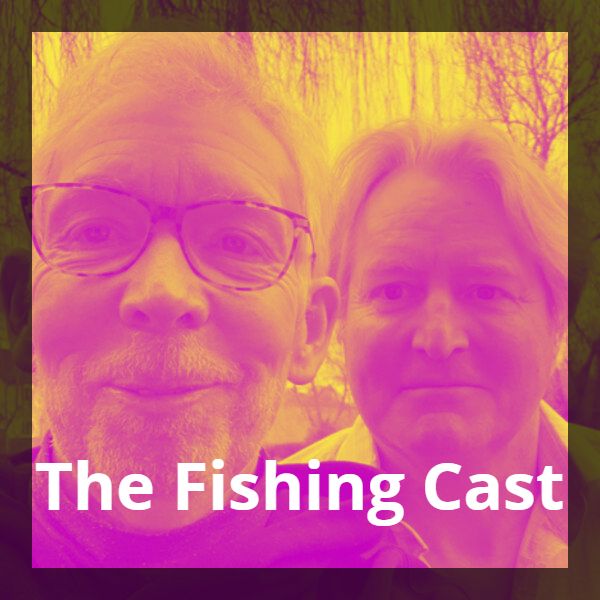 Aisde from that technical feedback Charles and I have been really delighted with your support and comments. Some fascinating stuff has come our way which we'll bring your way in the next edition.
Aisde from that technical feedback Charles and I have been really delighted with your support and comments. Some fascinating stuff has come our way which we'll bring your way in the next edition.
I have been delving into the data on who is listening where and on what. It is a two thirds/one third split on the go/at home. 85% of you are in the UK though to my utter surprise Blackheath (18%) is the most popular listening post followed by Islington (13%). Who would have guessed? A good majority of you are using some sort of Apple device but a special shout out to the one person who listens on an Apple watch.
The next Fishing Cast is on Thursday February 27th via your normal podcast provider or listen directly via our dedicated web site. Happy listening and do keep the feedback coming.
PS If you can take a moment to rate our podcast it moves us up the slippery algorithm pole. Thank you.
 The lengths people go to
The lengths people go to
I'm sorry but I don't get the tattoo thing; the art is usually so bad that I would not hang it on my wall let alone permanently engrave it upon my skin.
But I guess everyone to their own and for once I have now seen a tattoo with a practical purpose. Added to the fact as your skin shrinks and sags with age your fish will become correspondingly longer.
That said I am going to stick with the trusty notches on my rod.
Photo of the week
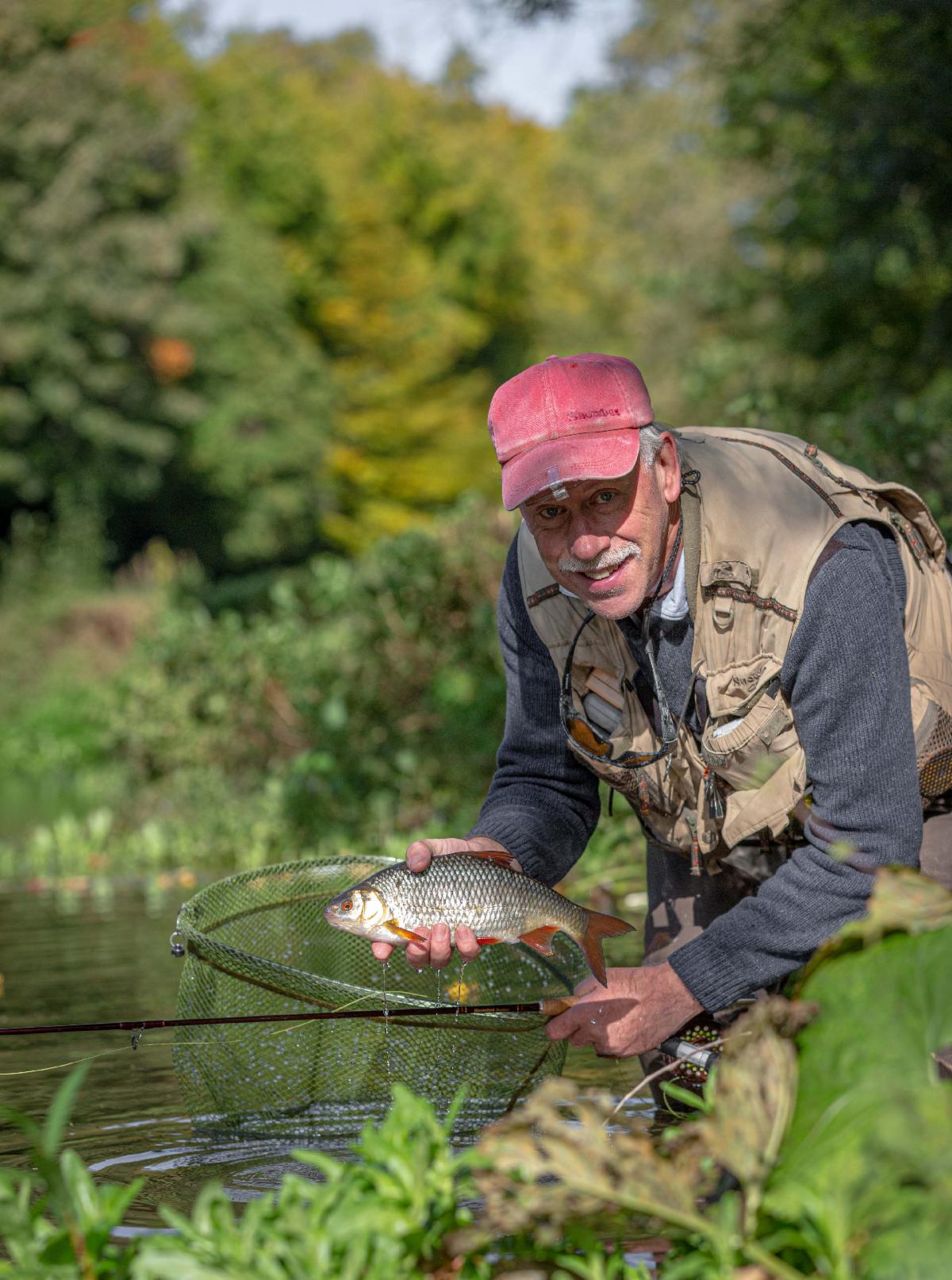 I will get back to trout eventually (just six weeks to go ....) but in response to my roach piece last time Simon Kidd of Snowbee (pictured) sent me two gorgeous roach photos taken by his son Matt.
I will get back to trout eventually (just six weeks to go ....) but in response to my roach piece last time Simon Kidd of Snowbee (pictured) sent me two gorgeous roach photos taken by his son Matt.
It just goes to prove that a university degree in photography counts for a lot. You can see a great deal more of Matt's work in the sumptuos quarterly Fieldspsorts magazine of which he is Editorial Manager.
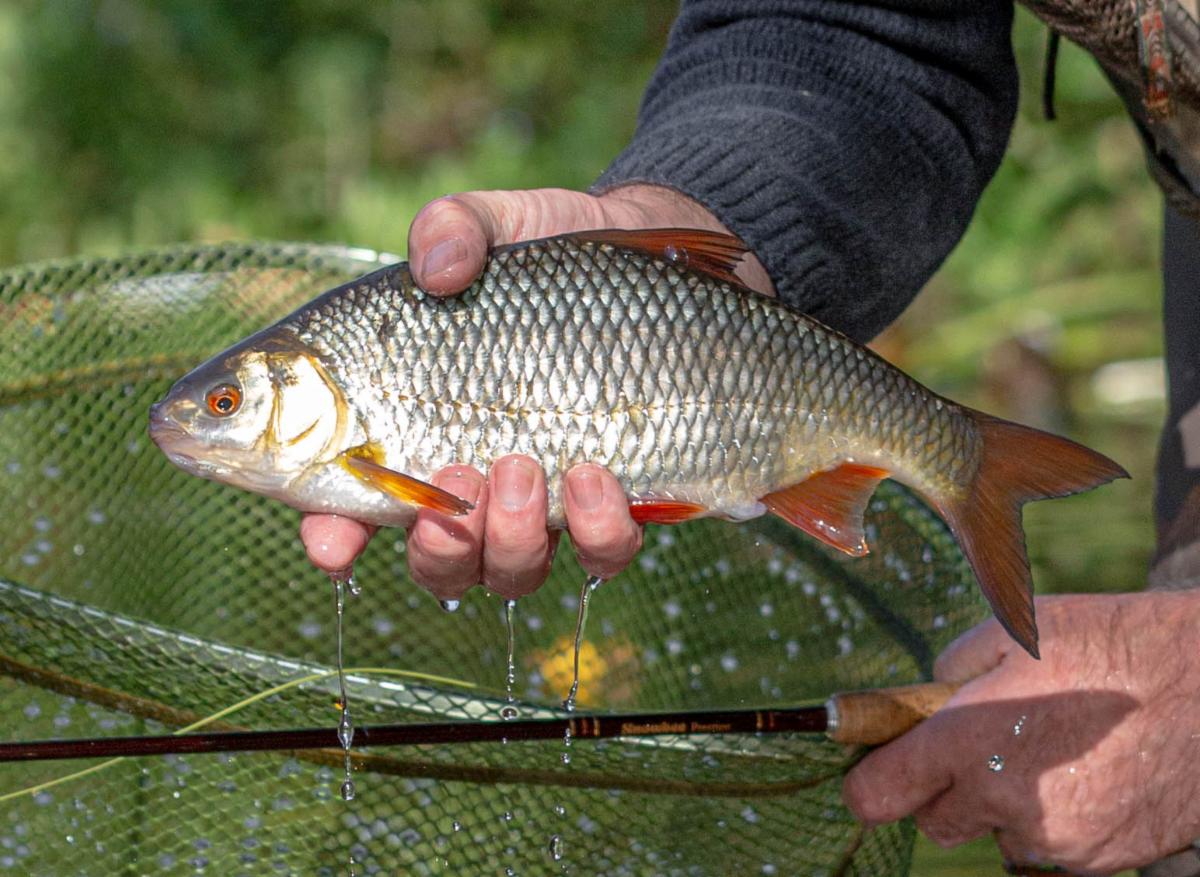
Quiz
No theme this week other than tangentially the Newsletter topics. As ever the quiz is just for fun, with answers at the bottom of the page.
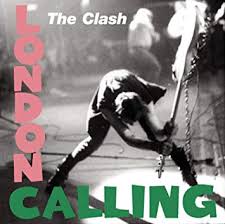 | |
1) In what year did The Clash release their first album, imaginatively called The Clash?
2) Giles Coren is the son of which editor of Punch magazine?
3) Beavers have a gland that produces castoreum which has an effect similar to what moderm medicine?
Have a good weekend.
Best wishes,
Simon Cooper simon@fishingbreaks.co.uk
Founder & Managing Director
Answers:
1) 1977
2) Alan Coren
3) Asprin

No comments:
Post a Comment